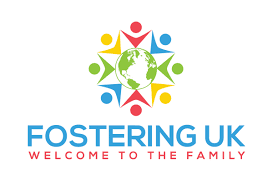The Journey of Fostering Children: Challenges and Rewards
Fostering children is a profoundly significant and life-changing experience that can change the lives of both the children and the foster parents. While it has its own set of difficulties, the benefits and great consequences make it all worthwhile. In this blog post, we'll look at the complexities of fostering children, from the first steps to the long-term effects it can have on everyone involved.
Understanding Fostering
Fostering is a temporary care arrangement for children who are unable to live with their biological families for a variety of reasons, including neglect, abuse, or parental difficulties. Its goal is to provide a safe and supportive environment for children to thrive while their birth family seek to resolve the difficulties that caused their separation.
The Fostering Process
Becoming a foster parent entails a thorough process that ensures the safety of both the children and the potential carers. Let us now look at the essential steps in the nurturing process:
Step 1: Information Gathering
The path begins with researching fostering, attending information sessions, and contacting local fostering agencies or authorities. This stage assists prospective foster parents in understanding the requirements, expectations, and potential obstacles associated with being a foster parent.
Step 2: Application and Assessment
Following their decision to proceed, prospective foster parents must complete an application procedure that includes background checks, references, and interviews. To ensure a safe and suitable setting for the children, social workers will undertake a full assessment of the family, including home visits.
Step 3: Pre-Service Training
Pre-service training provides prospective foster parents with the knowledge and skills needed to care for children who have undergone trauma or have been placed in difficult situations. These training programmes address themes like child development, attachment, behavioural management, cultural sensitivity, and comprehending the regulations and procedures of the foster care system.
Step 4: Matching Process
Once accepted, foster parents are placed with children based on their individual needs and circumstances. The matching process seeks to provide a supportive and appropriate environment by taking into account elements such as the foster parents' experience, abilities, preferences, and the child's special needs.
Step 5: Transition and Adjustment
It is critical to ensure a smooth transition and a supportive environment when a kid enters a foster family. Foster parents have an important role in assisting children in adjusting to new environments, establishing trust, and developing healthy connections. Patience, understanding, and open communication are required during this process.
Step 6: Support and Collaboration
Foster parents receive continual support from social workers, therapists, and other experts involved in the child's care throughout the fostering journey. Collaboration with these individuals aids in addressing the child's needs, attending court hearings, participating in case management activities, and gaining access to appropriate resources and services.
Step 7: Emotional Challenges and Self-Care
Fostering children can be emotionally taxing since foster parents may encounter the aftereffects of tragedy and must negotiate complex emotions. Foster parents must prioritise self-care and seek help from their support networks, which include other foster parents, friends, and family members. Accessing counselling services or support groups can be quite beneficial in terms of assistance and encouragement.
The Rewards of Fostering
While fostering has its obstacles, it also has many benefits and consequences for everyone involved:
Making a Difference in a Child's Life
Foster parents have an amazing opportunity to directly impact a child's life by offering stability, love, and support. Fostering provides a safe sanctuary for children to heal, grow, and thrive while gaining important life skills and a feeling of belonging.
Building Meaningful Connections
Fostering enables foster parents to build close relationships with the children in their care. These ties, which provide a sense of family and belonging, can be transforming for both the kid and the foster parent. Fostering relationships often persist long after the kid returns to their birth family or moves on to a permanent placement.
Personal Growth and Learning
Fostering requires foster parents to learn new skills, improve their sensitivity and understanding, and widen their horizons. As foster parents learn to navigate complex situations, advocate for the child's needs, and provide a supportive atmosphere, it provides an opportunity for personal growth. The experience can be enriching, increasing foster parents' compassion and resilience.
Supporting Family Reunification or Adoption
Fostering's ultimate purpose is to facilitate family reunification whenever possible. When birth families resolve the issues that caused the separation, foster children may be reunited with their biological parents, reinforced by the support and care they received while in foster care. Witnessing a successful family reunification can be quite satisfying for foster parents.
If reunification is not possible, foster parents may be able to provide a forever home through adoption. As a result, they are able to create a stable, caring environment for a child who would otherwise face uncertainty in the future.
Contributing to the Community
Individuals and families that foster children help to improve their communities. They are critical in assisting vulnerable children, promoting their well-being, and ultimately breaking the cycle of abuse, neglect, and instability. Fostering enhances society's social fabric by establishing a network of caring adults who prioritise the well-being of foster children.
Inspiring Others
Fostering has an impact that reaches beyond the immediate family involved. Foster parents encourage people in their community to foster or support foster families. Their dedication, compassion, and resilience serve as a compelling example, inspiring others to make a difference in the lives of children in need.
Conclusion,
While fostering children has its obstacles, the benefits and positive outcomes far outweigh the problems. Fostering allows you to have a long-term impact on a child's life, contribute to the community, and experience personal growth. It is a journey of love, compassion, and hope, providing children with the opportunity to develop and build a better future.
.jpg)



Comments
Post a Comment